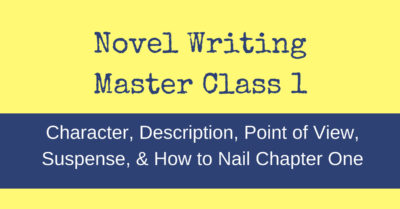The difference between getting a serious read and having your manuscript go straight to the delete file can come down to something as seemingly simple as improper formatting.
Here are five mistakes that will ensure your manuscript doesn’t get read by an agent or editor:
1. Single spacing and non-standard spacing between paragraphs
Manuscripts should be double-spaced, with a standard indention in each paragraph. Don’t add extra lines between paragraphs, either. You’re not writing for the web! Adding extra spaces between paragraphs instead of indenting the first line of each paragraph is a common mistake that screams “unprofessional.”
2. A rambling or boastful cover letter.
A cover letter for a novel should provide a brief synopsis, as well as your previous publications or relevant qualifications (an MFA in creative writing, for example, or a writing workshop through a respected university or with a well-known writer). While it should definitely have a hook, it should not tell the reader that it’s “the best book you’ll read this year,” “a sure bestseller,” or “a riveting adventure story.” That’s for the reader to decide.
Remember, agents and editors have been around the block. They know how hard it is for a book to be a genuine bestseller (not an Amazon bestseller, which, it turns out, is kind of a scam). They know that even much-anticipated titles with high-level support from the publisher often don’t make the New York Times bestseller list, the USA Today bestseller list, the Indie Next bestseller list, or any of the lists that matter. So if you tell them your book is destined to be a bestseller, it makes you look arrogant and uninformed.
There’s certainly nothing wrong with self-publishing, but if you’ve done that, never include Amazon reviews in your cover letter as a way of validating your book. On the other hand, if you’ve sold 10,000 copies or more of your book on Amazon (meaning people have paid for it, not that you’ve given it away for free), include that in your letter. It shows that you’ve already done some groundwork and people have found your book interesting enough to pay for it.
Your cover letter should be interesting and engaging, and it should make the agent or editor in question want to read your book. Anything you write that makes you seem self-centered or difficult to work with will lead to a swift rejection.
3. Weird fonts
If you’re tempted to get creative with fonts, don’t. Cursive, all caps, excessive bolding, or difficult-to-read fonts come off as unprofessional and even aggressive. Stick to Times New Roman, Garamond, or Helvetica?—?something simple, clean, and easy to read. Courier used to be the standard, but it looks oddly old-fashioned now (everyone knows you’re not using an actual typewriter). 12 points has long been the standard, but in a slightly smaller font, like Garamond, I’ll often use 13 points to increase readability.
4. An excessive or overwritten prologue
This, I admit, may be a matter of taste. However, in general, agents and editors want to get right into a book. They want to be hooked from sentence once. Often, writers will decide to put their “best writing” in a prologue. This may be overwritten prose that is intended more to show off. In your opening pages, don’t show off. Hook the reader. Make the story so compelling it’s impossible to put down. Make sure there’s conflict from page one.
5. Lack of Focus
An agent or editor should know very quickly what kind of book he or she is getting into. The cover letter will do a lot of this work for you: it should let the reader know what the genre is, and what the book is about. Is it a literary thriller? Is it a literary coming-of-age novel with mainstream appeal? Is it a historical romance? Don’t be afraid of labels!
Labels save the reader a lot of time and let them know that a:) you’ve thought about how to market the book and b:) there is a specific audience for this book.
6. Lack of “Comps”
Be sure to include comps: comparabe books that have sold well in the last few years. If you don’t include two or three comps, it looks as though you know nothing about the industry and you don’t care enough to think about who your book will appeal to.
7. A Boring First Chapter
If the agent or editor reads past the cover letter to page one of the novel, you’re already ahead. Don’t squander that first chapter! The chapter should deliver on the promise of the cover letter. The reader needs to know that she’s in good hands, that this is the work of a competent storyteller who knows what she’s writing about, and why. Learn how to write a stand-out first chapter that will get your novel noticed in Novel Writing Master Class One.
Michelle Richmond is the internationally bestselling author of five novels and two story collections and the founder of micro-press Fiction Attic.
